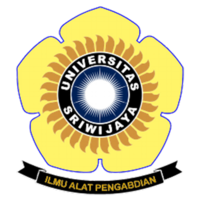Peran Kader Posyandu Dalam Pemanfaatan dan Sosialisasi Toga di Masa Pandemi Covid-19
Abstract
Ifroh RH. 2020. The role of posyandu cadres in utilization and socialization of fmp in pandemic covid-19. In: Herlinda S et al. (Eds.), Prosiding Seminar Nasional Lahan Suboptimal ke-8 Tahun 2020, Palembang 20 Oktober 2020. pp. xx. Palembang: Penerbit & Percetakan Universitas Sriwijaya (UNSRI).
Community involvement was the strategic issues to reduce the number of positive cases of COVID-19 in Samarinda with a positive confirmation rate of 1,248 (8th Sept 2020). The efforts made was to involve community groups as activists, cadres in the use of family medicinal plants (FMP) as an alternative in increasing of immunity and community health. The research objective was to analyze the association between practice of using family medicinal plants and the socialization of the benefits of FMP to the community and to identify the types of plants used by the cadres. The study design was cross-sectional with a survey approach. The sampling technique used purposive sampling with a sample size of 88 cadres. Data analysis of the association between socialization of FMP and the community on the practice of using FMP by contingency coefficient test analysis. The results showed that the average age of cadres was 42 years and the average length become a cadre was 7 years. The types of family medicinal plants that were mostly planted were turmeric, ginger and papaya leaves. There is a statistical association between FMP socialization which includes appeals from cadres, cadres' requests and explanations of the benefits of TOGA to the community with the practice of using FMP for each cadre (P value <0.001) with community responses as many as 61.36% leading to positive, socialization between cadres and the community 79.5% effective through interpersonal communication. In conclusion, cadres contribute to the use of FMP both independently and in mobilizing the community.
Community involvement was the strategic issues to reduce the number of positive cases of COVID-19 in Samarinda with a positive confirmation rate of 1,248 (8th Sept 2020). The efforts made was to involve community groups as activists, cadres in the use of family medicinal plants (FMP) as an alternative in increasing of immunity and community health. The research objective was to analyze the association between practice of using family medicinal plants and the socialization of the benefits of FMP to the community and to identify the types of plants used by the cadres. The study design was cross-sectional with a survey approach. The sampling technique used purposive sampling with a sample size of 88 cadres. Data analysis of the association between socialization of FMP and the community on the practice of using FMP by contingency coefficient test analysis. The results showed that the average age of cadres was 42 years and the average length become a cadre was 7 years. The types of family medicinal plants that were mostly planted were turmeric, ginger and papaya leaves. There is a statistical association between FMP socialization which includes appeals from cadres, cadres' requests and explanations of the benefits of TOGA to the community with the practice of using FMP for each cadre (P value <0.001) with community responses as many as 61.36% leading to positive, socialization between cadres and the community 79.5% effective through interpersonal communication. In conclusion, cadres contribute to the use of FMP both independently and in mobilizing the community.
Keywords
cadre, family medical plants, interpersonal communication
Full Text:
PDFArticle Metrics
Abstract view : 803 timesPDF - 1144 times
Refbacks
- There are currently no refbacks.

